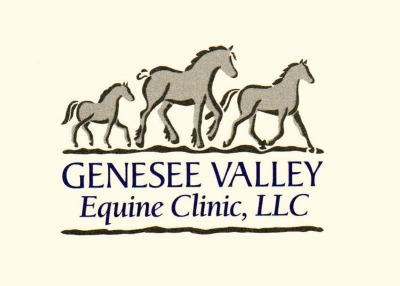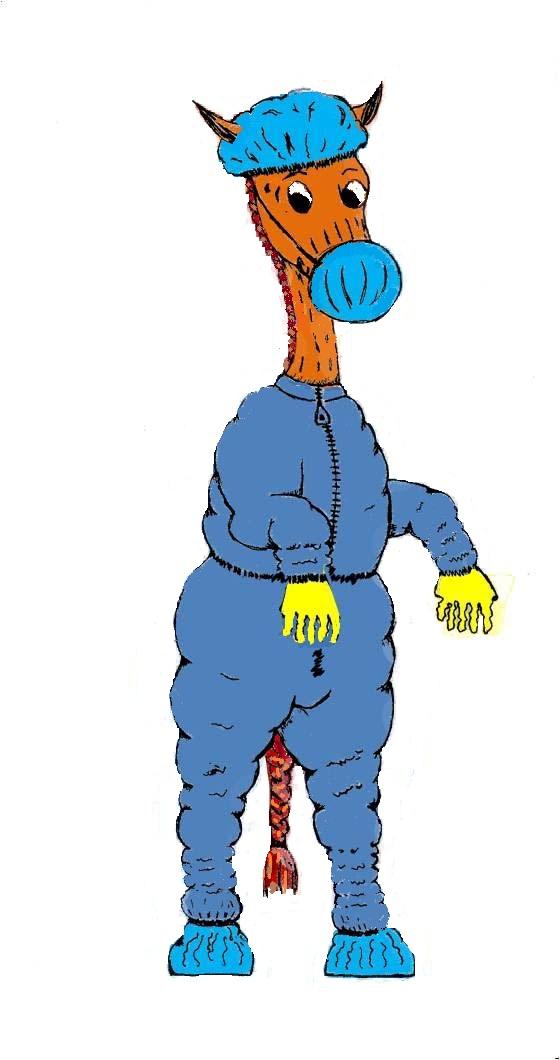| |
| |
Spring Newsletter
March 2016
|
Thursday
March 24, 2016
7 - 9 PM

"The Easy Keeper"
Presented by
Dr. Ana Pacheco
and
Patty Sheffer, Territory Representative,
Nutrena Horse Feeds
Do you have a horse that is
fat despite getting very little feed? Are you worried about laminitis? Please join us for the evening to talk about "easy keepers". Dr. Ana Pacheco and Patty Sheffer (Nutrena) will team up to discuss causes, consequences and management of obesity in horses. Clinical cases will be presented. We will also allow plenty of time to address your specific questions.
_____________ |
|
Don't forget, spring means it's time to do fecal testing for intestinal parasites!

Prepare your sample for your spring vet visit or bring it to the clinic. Collect just a few manure balls, place them in a clean container or zip lock bag, and label with your name and your horse's name. The sample should be no more than 24 hours old and should not have been frozen. Our veterinary technicians Kellie and Emma will be happy to answer your questions about fecals if you call our office at 585-889-1170
_____________ |
|
|
 Zoonotic Diseases: Infections You Can Get From Your Horse
Zoonotic Diseases: Infections You Can Get From Your Horse
Zoonotic diseases, or zoonoses, are diseases that are transmitted between people and animals. Transmission can occur either by direct transfer from an animal to a person by infected bodily fluid, bites, or scratches or by indirect transfer via insects, the air, or inanimate objects (fomites) such as buckets, door handles, clothing, floors, etc.
People with weakened immune systems, children, elderly, and pregnant women can have an increased risk. While there are more diseases than are included on this list, we are going to highlight some of the diseases that can be directly transferred from horses to people.
|
|
Rabies
This disease is still found worldwide. The rabies virus attacks the central nervous system and ultimately leads to death. Caretakers are put at risk when they look in the mouth or give oral medication with bare hands. Fortunately, modern vaccines are almost 100% effective at preventing this deadly disease.
|
|
|
Rain Rot
Rain rot is a slang term used for a superficial skin infection or dermatitis that is caused by dermatophilus congolensis bacteria. While rare, this bacteria has been known to cause skin infections in people which can be itchy or painful.
|
|
|
Ringworm
The classic sign of ringworm is a round, hairless, scaly lesion. This fungal infection can be passed directly from horse to horse or to people who have handled the horse or contaminated equipment.
|
|
Salmonella, Clostridium, and Giardia
Salmonella, clostridium, and giardia are all pathogens that can cause diarrhea. Most of us wouldn't knowingly ingest fecal material, but bacteria is microscopic, so it can easily be ingested if food is contaminated or hands haven't been washed.
|
|
|
Leptospirosis
Leptospirosis is a bacterial disease that affects people, wildlife, and domestic animals. Leptospirosis is typically transmitted via infected urine, but aborted fetal tissue can be a source of infection.
|
|
|
Many of us worry about our horse's health, but it is important not to take your own health for granted. Simple prevention measures can keep you safe.
- Practice good hygiene. Wear gloves if necessary. Wash your hands frequently or use alcohol based hand sanitizer. Wash clothes and boots that may be contaminated.

Disinfect properly. Household bleach is not going to be an effective disinfectant for your barn and without a good scrub, you are likely wasting your disinfectant. Remember to wear gloves, face masks, and eye protection. For more information on getting your barn really clean click here.
Maintain your horse and yourself in good health. Keep your horse's immune system protected with annual vaccines. These vaccines not only protect your horses, but can also protect you. Health assessment exams can provide a full body scan to check for any concerns.
- Use mosquito and tick repellents to minimize exposure to bites. Don't forget your own insect repellent.
- Isolate sick horses. Keep sick horses separate from others especially if they have a fever or diarrhea. Notify your veterinarian so they can guide you regarding diagnostics, treatment, and biosecurity. In some cases, stalls or pastures may need to be kept out of rotation for a period to time if the organism can survive in the environment and infect others.
|
|
|
|
Meet Emma Meli, LVT
The newest addition to our staff,
Emma Meli, LVT
, completed a BA in biology with a concentration in organizational biology at Keuka College in 2013. She then pursued a degree in veterinary technology at Genesee Community College and graduated from their program in May of 2015. A native of Henrietta, NY, her interest in horses began at an early age when she volunteered with Cerebral Palsy Rochester's therapeutic riding program. Emma rides both western and English pleasure and hopes to have her own horse someday soon. In her spare time she enjoys reading, hiking, cooking, and dreams of traveling out west and to Europe.
|
|
| |
| |
|